Toyota Supra VS SsangYong Rexton – Specs, Efficiency & Price Comparison
Which model is the better choice – the Toyota Supra or the SsangYong Rexton? We compare performance (441 HP vs 202 HP), boot capacity (290 L vs 784 L), efficiency (7.10 L vs 8.20 L), and of course, the price (54200 £ vs 41100 £).
Find out now which car fits your needs better!
The Toyota Supra (Coupe) is powered by a Petrol engine and comes with a Automatic or Manuel transmission. In comparison, the SsangYong Rexton (Off-Roader) features a Diesel engine and a Automatic gearbox.
When it comes to boot capacity, the Toyota Supra offers 290 L, while the SsangYong Rexton provides 784 L – depending on what matters most to you. If you’re looking for more power, you’ll need to decide whether the 441 HP of the Toyota Supra or the 202 HP of the SsangYong Rexton suits your needs better.
There are also differences in efficiency: 7.10 L vs 8.20 L. In terms of price, the Toyota Supra starts at 54200 £, while the SsangYong Rexton is available from 41100 £.
Compare all the key specs now and find out which model fits your lifestyle best!
Toyota Supra
The Toyota Supra stands as an iconic symbol in the world of sports cars, blending striking aesthetics with performance. Its sleek design and elegant curves capture attention, while the finely tuned engine offers an exhilarating driving experience. Inside, the driver-focused cockpit combines luxury with cutting-edge technology, ensuring both comfort and excitement on the road.
details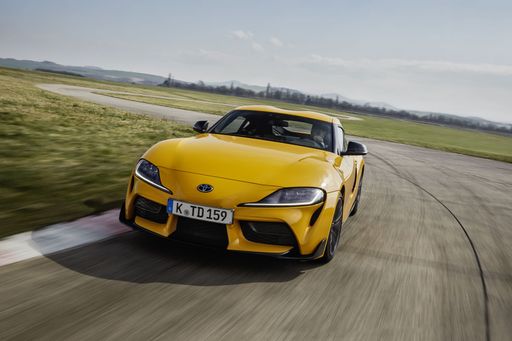 @ toyota-media.de
@ toyota-media.de
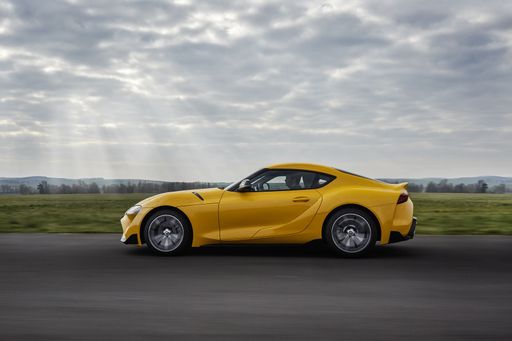 @ toyota-media.de
@ toyota-media.de
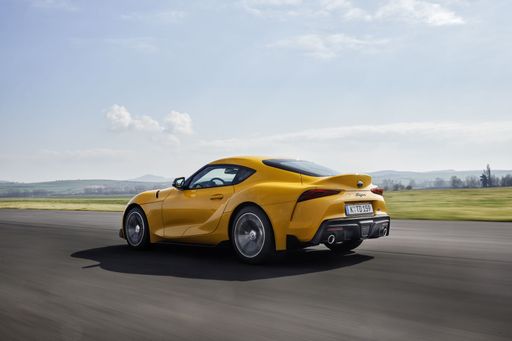 @ toyota-media.de
@ toyota-media.de
SsangYong Rexton
The SsangYong Rexton stands out in the SUV segment with its robust design and commanding presence on the road. It offers a spacious interior with high-quality materials, providing comfort and practicality for both driver and passengers. The Rexton combines off-road capability with modern technology, making it an attractive option for those seeking a versatile and durable vehicle.
details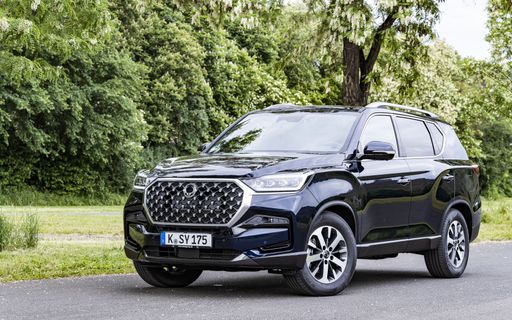 @ Ssangyong
@ Ssangyong
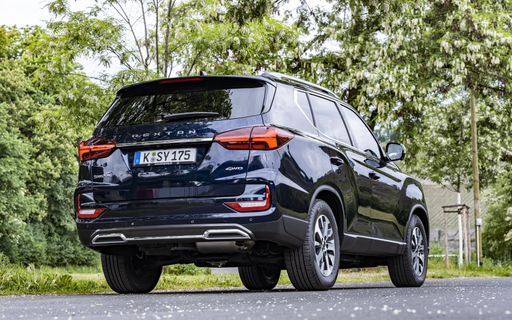 @ Ssangyong
@ Ssangyong
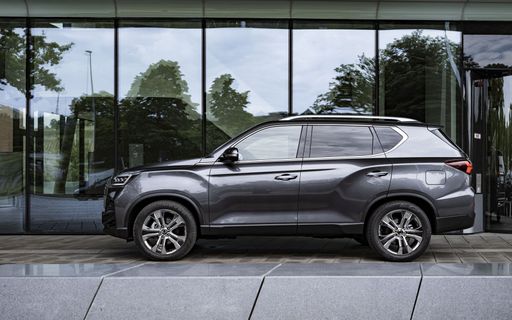 @ Ssangyong
@ Ssangyong
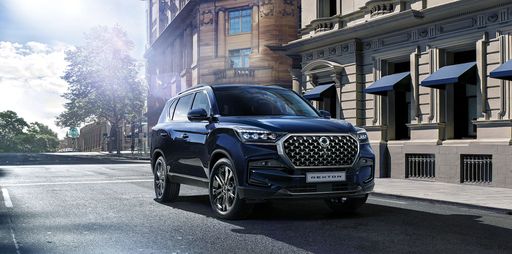 @ Ssangyong
@ Ssangyong
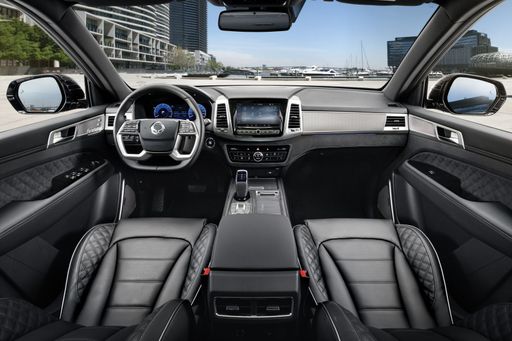 @ Ssangyong
@ Ssangyong

|

|
|
|
|
Costs and Consumption |
|
|---|---|
|
Price
54200 - 122400 £
|
Price
41100 - 51300 £
|
|
Consumption L/100km
7.1 - 9 L
|
Consumption L/100km
8.20 L
|
|
Consumption kWh/100km
-
|
Consumption kWh/100km
-
|
|
Electric Range
-
|
Electric Range
-
|
|
Battery Capacity
-
|
Battery Capacity
-
|
|
co2
161 - 204 g/km
|
co2
214 - 216 g/km
|
|
Fuel tank capacity
52 L
|
Fuel tank capacity
70 L
|
Dimensions and Body |
|
|---|---|
|
Body Type
Coupe
|
Body Type
Off-Roader
|
|
Seats
2
|
Seats
5 - 7
|
|
Doors
3
|
Doors
5
|
|
Curb weight
1395 - 1580 kg
|
Curb weight
2145 - 2180 kg
|
|
Trunk capacity
290 L
|
Trunk capacity
236 - 784 L
|
|
Length
4379 mm
|
Length
4850 mm
|
|
Width
1854 - 1867 mm
|
Width
1960 mm
|
|
Height
1276 - 1292 mm
|
Height
1825 mm
|
|
Payload
215 - 315 kg
|
Payload
655 - 770 kg
|
Engine and Performance |
|
|---|---|
|
Engine Type
Petrol
|
Engine Type
Diesel
|
|
Transmission
Automatic, Manuel
|
Transmission
Automatic
|
|
Transmission Detail
Automatikgetriebe, Schaltgetriebe
|
Transmission Detail
Automatic Gearbox
|
|
Drive Type
Rear-Wheel Drive
|
Drive Type
All-Wheel Drive
|
|
Power HP
258 - 441 HP
|
Power HP
202 HP
|
|
Acceleration 0-100km/h
4.3 - 5.2 s
|
Acceleration 0-100km/h
10.60 s
|
|
Max Speed
250 - 275 km/h
|
Max Speed
184 km/h
|
|
Torque
400 - 571 Nm
|
Torque
441 Nm
|
|
Number of Cylinders
4 - 6
|
Number of Cylinders
4
|
|
Power kW
190 - 324 kW
|
Power kW
148 kW
|
|
Engine capacity
1998 - 2998 cm3
|
Engine capacity
2157 cm3
|
General |
|
|---|---|
|
Model Year
2024 - 2025
|
Model Year
2021 - 2023
|
|
CO2 Efficiency Class
F, G
|
CO2 Efficiency Class
G
|
|
Brand
Toyota
|
Brand
SsangYong
|
Toyota Supra
A Revitalised Icon: The Toyota Supra
The Toyota Supra has been a byword for performance and style since its inception. In its latest iteration, the Supra continues to captivate automotive enthusiasts with its blend of heritage and modern innovation. With a stunning profile and state-of-the-art engineering, the Toyota Supra is more than just a sports car; it’s a testament to Toyota’s commitment to excellence.
Engineering Excellence Under the Hood
At the heart of the Toyota Supra lies a sophisticated 2.0-litre turbocharged four-cylinder engine. This power unit, with a displacement of 1998 cm3, provides a thrilling 258 PS (190 kW) and an impressive torque output of 400 Nm. Such output doesn’t come at the cost of efficiency, as the Supra’s fuel consumption stands at an economical 7.1 L/100 km, supported by an automatic transmission that emphasises smooth power delivery and driving comfort.
Driving Dynamics and Performance
Driving the Toyota Supra is an experience defined by precision and agility. With an acceleration from 0 to 100 km/h in just 5.2 seconds and a maximum speed of 250 km/h, the Supra emboldens its driver with confidence. The rear-wheel-drive layout provides dynamic prowess, ensuring a well-balanced and responsive performance on both straight roads and winding tracks.
Design: A Nod to Tradition with Modern Flair
The design of the Toyota Supra is a harmonious blend of old and new. Its coupe silhouette is characterised by sleek lines and an assertive stance, true to its sports car roots. Measuring 4379 mm in length, 1854 mm in width, and 1292 mm in height, the Supra asserts itself with a compact yet muscular profile. The bold aesthetics are complemented by innovative features that emphasise aerodynamics and driving stability.
Safety and Technological Innovations
Toyota embeds cutting-edge technology within the Supra to enhance driver and passenger safety. Modern connectivity options, driver-assistance systems, and a CO2 efficiency class of F reflect Toyota’s dedication to integrating technology without compromising performance. The Supra’s technologically advanced cockpit connects seamlessly with today’s demand for a digitally proficient driving environment.
Comfort and Practicality
Despite its focus on performance, the Toyota Supra does not neglect practicality. Offering a surprisingly spacious 290 litres of boot space and a tank size of 52 litres, it accommodates both the need for speed and everyday usability. The interior craftsmanship prioritises comfort, ensuring that the Supra remains a suitable companion for both the daily commute and longer escapades.
Conclusion: An Icon Reimagined for the Future
The Toyota Supra stands out not only as a reborn icon but as a forward-thinking sports car that embodies Toyota’s innovative spirit. With a range of options such as the Dynamic Automatik and Pure Automatik trims, the Supra offers tailored experiences for its discerning audience. Ultimately, this modern legend continues to inspire car lovers, representing a perfect harmony of heritage and innovation.
SsangYong Rexton
The SsangYong Rexton: Rugged Elegance on Wheels
The SsangYong Rexton is a versatile SUV that combines robust off-road capabilities with luxurious touches, making it a compelling choice for those who demand both adventure and comfort. Let's dive into the technical nuances and innovations that set this vehicle apart in the competitive SUV segment.
Powertrain Excellence
Under the hood, the SsangYong Rexton embodies power and efficiency with its diesel engine. The e-XDI 220 engine delivers an impressive 202 PS, equating to 148 kW, and generates a torque of 441 Nm. This power is distributed through a sophisticated automatic transmission system, ensuring smooth gear changes and an ideal blend of performance and economy. With an all-wheel-drive system, drivers can confidently tackle diverse terrains, making this SUV a capable partner on any journey.
Impressive Fuel Efficiency and Range
Despite its robust performance, the Rexton is mindful of fuel consumption, boasting a fuel economy of 8.2 L/100km. This efficiency is complemented by a sizeable 70-litre fuel tank, providing an extensive driving range, whether you're navigating urban landscapes or venturing off the beaten path.
Design and Practicality
With dimensions of 4850 mm in length, 1960 mm in width, and 1825 mm in height, the Rexton has a commanding presence. Inside, it offers flexible seating arrangements for up to 7 passengers. The boot space, ranging from 236 to 784 litres, ensures you have ample room for all your gear, making it an ideal companion for family trips or outdoor adventures.
Safety and Technology
Safety is paramount in the SsangYong Rexton. The vehicle is equipped with a suite of advanced safety features, although specifics aren't detailed here. Additionally, modern technological integrations in the Rexton enhance the driving experience, making each journey as enjoyable as it is secure.
Cost-Effectiveness
With monthly running costs ranging between €1075 and €1196 and a cost per kilometre of 86 to 95.7 cents, the Rexton offers a balance of power and efficiency without breaking the bank. The vehicle's price range of €47,990 to €59,890 reflects its premium build and the luxuries it affords its owners.
Environmental Considerations
Though the Rexton impresses with its suite of features, it's worth noting its CO2 emissions, classified in the G efficiency class. With emissions between 214 and 216 g/km, potential buyers might consider how the Rexton's performance aligns with their environmental priorities.
Conclusion: A Commanding SUV Choice
The SsangYong Rexton encapsulates the essence of a modern SUV with its blend of rugged capability, luxury, and intelligent design. Whether you're an urban commuter or an off-road enthusiast, the Rexton promises a driving experience that stands out in both style and substance.
The prices and data displayed are estimates based on German list prices and may vary by country. This information is not legally binding.
